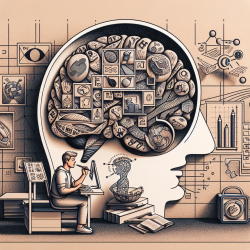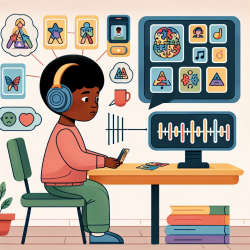In the ever-evolving field of speech-language pathology, data-driven approaches and technological advancements are critical in improving therapeutic outcomes. A recent study published in the International Journal of Environmental Research and Public Health, titled "Improvements for Therapeutic Intervention from the Use of Web Applications and Machine Learning Techniques in Different Affectations in Children Aged 0–6 Years," sheds light on how web applications and machine learning can revolutionize early childhood interventions.
Key Findings from the Study
The study focused on developing a web application called eEarlyCare-T, designed to create personalized therapeutic intervention programs for children aged 0–6 years with various developmental disorders. Here are some key findings:
- The web application uses cloud technology to record and analyze developmental progress.
- Machine learning techniques, including supervised learning (prediction) and unsupervised learning (clustering), were applied to analyze data.
- Three distinct clusters were identified based on functional development in 11 areas, enabling the creation of personalized intervention plans.
- Developmental age was found to be the most predictive variable, accurately predicting 75% of development in various areas.
Implications for Practitioners
For practitioners, these findings highlight several actionable steps to enhance therapeutic interventions:
- Utilize Web Applications: Incorporate web applications like eEarlyCare-T to streamline the assessment and intervention process. These tools facilitate the recording, analysis, and visualization of developmental data, making it easier to track progress and identify areas needing attention.
- Leverage Machine Learning: Apply machine learning techniques to analyze developmental data. These techniques can help identify patterns and predict outcomes, allowing for more precise and effective interventions.
- Create Personalized Plans: Use data-driven insights to develop personalized therapeutic intervention plans. Tailoring interventions to the specific needs of each child can significantly improve outcomes.
- Collaborate Across Disciplines: Engage with other healthcare professionals (e.g., neurologists, pediatricians, occupational therapists) to ensure a comprehensive approach to early childhood intervention.
Encouraging Further Research
While the study provides valuable insights, it also underscores the need for further research. Practitioners are encouraged to explore additional applications of web technologies and machine learning in early childhood interventions. Future studies with larger sample sizes and diverse populations will help validate and expand upon these findings.
To read the original research paper, please follow this link: Improvements for Therapeutic Intervention from the Use of Web Applications and Machine Learning Techniques in Different Affectations in Children Aged 0–6 Years.










